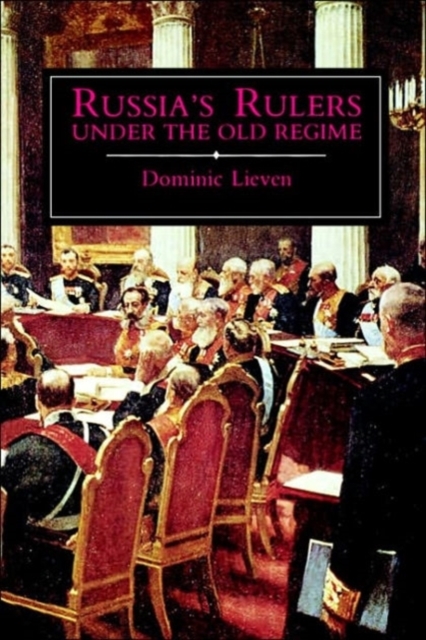
Russia's Rulers Under the Old Regime Paperback / softback
by Dominic Lieven
Paperback / softback
Description
Who were the members of the Russian ruling elite during the reign of the last Tsar before the Revolution?
How did high-level politics operate in Imperial Russia's last years?
In this highly original book, Dominic Lieven probes deeply into the lives of the 215 men appointed by Nicholas II to the State Council, which contained all important members of the Russian governmental system of that era.
Basing his research on previously untouched Soviet archival sources, Dominic Lieven describes the social, ethnic, educational, and career backgrounds of these men, and he explores how their mentalities were shaped, what their political views were, and how their attitudes and opinions were influenced by their differing backgrounds and careers.
Lieven looks not only forward to the causes of the collapse of the old regime but, in his introductory chapter, backward as well, tracing the history of the Russian ruling elite from its earliest origins and making comparisons with the ruling elite of other societies.
His conclusions about the resilience of the old aristocratic Russian families and the operation of their self-protective, career-advancing network are striking and original. Lieven's book serves many purposes. It tells us a great deal about the balance of power between the bureaucrats and their monarchs, it brings to life the members of the last ruling elite, and it reveals interesting information about the role and personality of the Emperor Nicholas II.
By making regular comparisons with aristocratic elites elsewhere, it sets the Russian experience in a broader European context. And by looking at Russia's problems through the eyes of its ruling aristocracy, it enables us to understand a good deal that is otherwise incomprehensible about the coming of the Russian Revolution.
Information
-
Out of stock
- Format:Paperback / softback
- Pages:429 pages, 35 b-w illus.
- Publisher:Yale University Press
- Publication Date:27/03/1991
- Category:
- ISBN:9780300049374
Information
-
Out of stock
- Format:Paperback / softback
- Pages:429 pages, 35 b-w illus.
- Publisher:Yale University Press
- Publication Date:27/03/1991
- Category:
- ISBN:9780300049374






